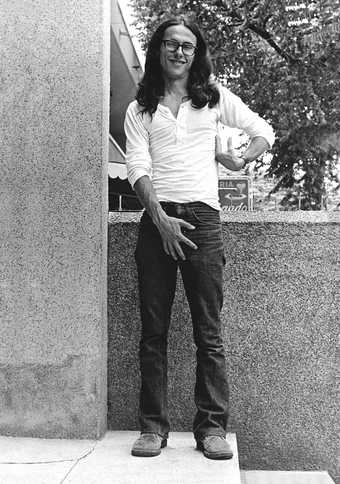This opening screening will shed light on the legendary Grupo de Cali with Oiga Vea / Hear, See 1972 a key early film by Luis Ospina and Carlos Mayolo and the essay film Andrés Caicedo: Unos Pocos Buenos Amigos 1986 on the cult author Andrés Caicedo. Made up of filmmakers, writers and artists the Grupo de Cali, also know as The Cali Group, led a cultural upheaval in Colombia through publications, screenings and creation of unique films that reflected on the relationship between popular and political culture in Latin America.
The influence and impact of writer Andrés Caicedo (1951-1977) has continued to grow following his untimely death, not only in Colombia but around the world. His writing, contrary to the school of Magical Realism, was grounded in urban experience and social reality. Luis Ospina was close friends with Andrés Caicedo and his essay film Andrés Caicedo: Unos Pocos Buenos Amigos / Andrés Caicedo: A Few Good Friends 1986 explores the work, life and legacy of Caicedo. As well as his writing Caicedo adapted many of his short stories into film scripts and embarked on various film projects, from a film he was to co-direct with Carlos Mayolo to attempting to sell scripts in Los Angeles to the legendary B-Movie producer Roger Corman. These various activities fed into his masterpiece, the novel ¡Que viva la música! / Liveforever that was published on the day of his death in 1977.
The screening will start with Luis Ospina and Carlos Mayolo’s first collaborative documentary Oiga Vea / Hear, See 1972 that exposed the divided society in Cali under the guise of documenting the Pan-American games in 1971 and paved the way for political films in Colombia throughout the 1970s.
Presented by Luis Ospina and followed by a discussion with the artist.
Oiga Vea / Hear, See
Luis Ospina and Carlos Mayolo, Colombia 1972, 16mm, black & white, 27 min
Andrés Caicedo: Unos Pocos Buenos Amigos / Andrés Caicedo: A Few Good Friends
Luis Ospina, Colombia 1986, video, colour, black & white, 86 min
Programme duration: 113 min
Tate Film is supported by LUMA Foundation


